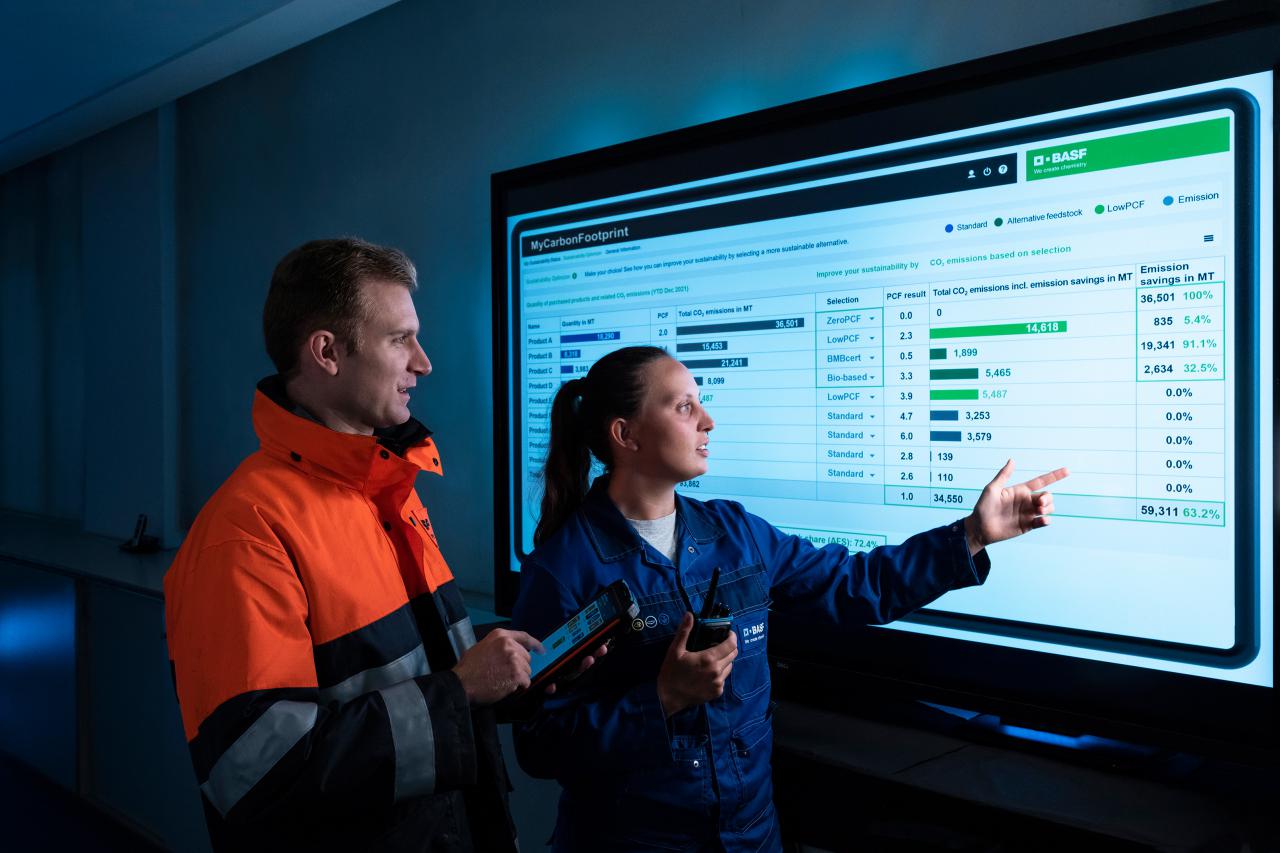BASF has launched a new digital app designed to help customers better understand the sustainability status of the product portfolio they purchase from BASF. It also helps customers identify BASF’s best solutions to achieve their sustainability goals in reducing CO2 and/or using renewable raw materials. The app called “MyCarbonFootprint” contains data on more than 700 BASF products, including pharmaceutical ingredients, amino resins, butanediol and its derivatives, acids, polyols, alkynes, carbonyl derivatives and amines. It is initially available to certain BASF customers who purchase products included in MyCarbonFootprint. Currently, more than 50 customers are using the app.

Customized for each client
MyCarbonFootprint informs customers about the cradle-to-door Product Carbon Footprint (PCF) of the BASF products they purchase. The application also shows the share of renewable raw materials used in the manufacture of these products. The data is presented in a way that is customized for each customer: Based on the number of purchases of the selected product, MyCarbonFootprint
Calculation of CO2 emissions, product carbon footprint and share of renewable raw materials based on customers’ BASF purchasing portfolio.
Optimize carbon footprint and share of renewable raw materials
With the help of MyCarbonFootprint, customers can determine how adjustments to their purchasing mix impact their sustainability profile in terms of CO2 emissions and use of renewable raw materials.
For example, MyCarbonFootprint calculates the potential reduction in CO2 emissions when choosing a product with a lower carbon footprint over a previously purchased product. MyCarbonFootprint also shows BASF customers a variety of alternatives to increase the proportion of renewable raw materials in the value chain by selecting suitable products.
Niels, Head of Global Strategic Marketing, BASF Intermediates Operations
“We developed MyCarbonFootprint to provide the transparency our customers need to pursue their CO2 reduction targets and select the best sustainable products from BASF’s portfolio to achieve their desired sustainability positioning,” explains Möller. Niels
The team led by Möller invents innovative IT tools and develops them to market maturity.
BASF’s product portfolio offers a wide range of sustainable products
MyCarbonFootprint provides an overview of the various sustainable products in BASF’s portfolio. For example, BASF customers can reduce their CO2 emissions by using BASF products with a low carbon footprint. These products have a significantly reduced product carbon footprint based on specific customer requirements or compared to reference values. The low carbon footprint product portfolio includes bio-based or biomass balanced products (BMB), which help customers achieve CO2 reductions compared to fossil-based standard products. In some cases, BASF also offers net-zero products with a carbon footprint of zero or less.
Switching to biomass-balanced products is also an easier way for customers to increase the share of renewable raw materials in the value chain. In a biomass balance approach, BASF injects renewable raw materials into its integrated plants during the first steps of chemical production. The corresponding shares of these raw materials are then attributed to specific sales products through certified mass balance methods. Certification of BASF’s biomass balance products is carried out according to recognized standards such as REDcert or ISCC
PLUS. Biomass Balance products are the same quality and performance as fossil-based standard products and are ready-to-use solutions. Customers can use them directly without having to adjust existing manufacturing processes.



 微信扫一扫打赏
微信扫一扫打赏
